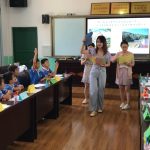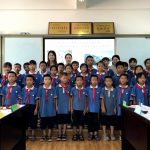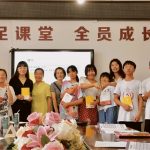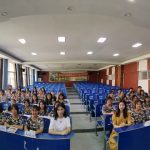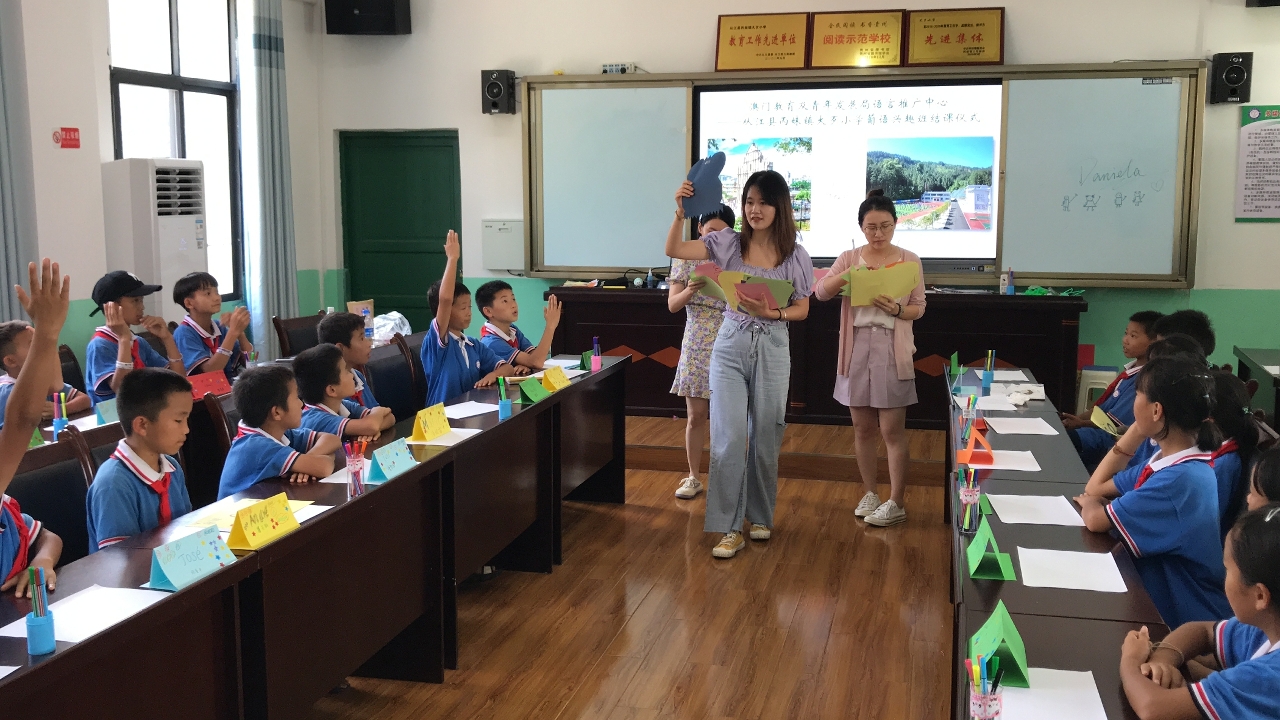 Students in a Portuguese language lesson
Students in a Portuguese language lesson
A group of ten faculty members and students in the Department of Portuguese, Faculty of Arts and Humanities, University of Macau (UM), recently taught Portuguese language courses in three schools in Congjiang county, Guizhou province. The language courses were commissioned by the Education and Youth Development Bureau of Macao and aimed to increase Congjiang students’ interest in Portuguese language and culture and strengthen their language skills.
Based on a framework agreement on poverty alleviation signed by the Macao SAR government and the Liaison Office of the Central People's Government in the Macao SAR, the Portuguese language courses aimed to support the Education and Youth Development Bureau in its education efforts in Congjiang. Led by Prof Zhang Jianbo and lecturer Lu Chunhui, the team composed of master’s and PhD students in the Department of Portuguese, who provided Portuguese language courses at a primacy school, a secondary school, and a vocational-technical school. A total of over 100 students participated in the courses.
Having completed three weeks of lessons, the Congjiang students can now fluently greet each other, as well as ask and answer common questions about basic personal information, in Portuguese. The UM team held a closing ceremony and exhibition at each of the three schools during the final lesson. During the events, the primary school students went through the three weeks of lessons in the form of a game and presented the highlights of the learning process in a short video, while students of the other two schools performed Portuguese songs.


